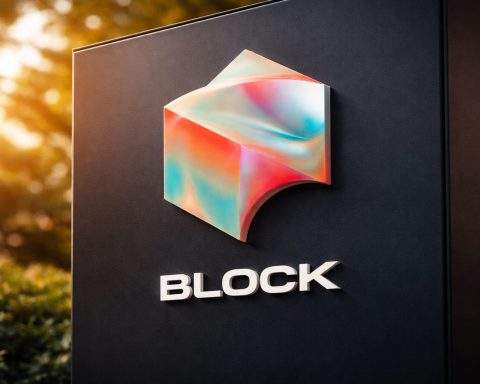- IPO details: WeWork India will launch a ₹3,000-crore IPO on Oct 3, 2025 (the day after Dussehra) and close it Oct 7, with expected listing on Oct 10 hindustantimes.com economictimes.indiatimes.com.
- Offer structure: It’s a pure Offer-for-Sale of about 4.63 crore shares – no fresh capital is raised. Promoter Embassy Buildcon and investor 1 Ariel Way (WeWork Global) will sell their shares hindustantimes.com moneycontrol.com, so WeWork India itself gets no proceeds moneycontrol.com.
- Owners: Embassy Group (~76.2% stake) and WeWork Global (~23.5%) are the majority owners hindustantimes.com moneycontrol.com. Embassy Group is a Bengaluru-based developer with 85+ million sqft of projects and sponsors the Embassy Office Parks REIT (Asia’s largest office REIT by area) newindianexpress.com.
- Business footprint: WeWork India operates premium co-working spaces in major cities (Bengaluru, Mumbai, Pune, Hyderabad, Gurugram, Noida, Delhi, Chennai) newindianexpress.com. It manages roughly 77 lakh sq ft (7.7 million sqft) of workspace (about 70 lakh sqft operational) with ~1.03 lakh desks and 500+ employees hindustantimes.com moneycontrol.com. (As of Sept 2024 it had ~94,440 desks across 59 centres and 6.48 million sqft newindianexpress.com.)
- Financials: WeWork India has been profitable of late – it reported a small net profit in the six months to Sept 2024 reuters.com. (By contrast, its U.S. parent had been incurring huge losses before its IPO collapse.) Embassy Group had also infused capital: WeWork Global put in $100M in 2021, and in Jan 2024 WeWork India raised ₹500 cr via rights issue to cut debt moneycontrol.com.
- Market context: The IPO comes amid a coworking boom in India. Listed peers Awfis and Smartworks have seen strong debut performances – Awfis’s May 2024 IPO raised ₹599 cr, and Smartworks’ July 2025 IPO (₹583 cr) jumped ~14% on its first trading day angelone.in reuters.com. Smartworks’s success highlights soaring demand – Reuters notes it competes directly with WeWork India and Awfis in a market where office leasing has hit two-year records reuters.com reuters.com. Other players (IndiQube, TableSpace, The Executive Centre, DevX, etc.) are also eyeing IPOs angelone.in reuters.com, making the sector “increasingly crowded” reuters.com.
IPO Launch and Structure
WeWork India Management Ltd. – the Embassy-backed Indian franchise of the global co-working giant – is set to open its initial share sale on October 3, 2025 hindustantimes.com economictimes.indiatimes.com. The offer will close on October 7, with an anchor bid day on Oct 1, and the shares are expected to list on October 10 hindustantimes.com economictimes.indiatimes.com. The entire IPO is structured as an offer-for-sale (OFS): existing shareholders will sell up to 4.63 crore equity shares, and the company will receive no new funds hindustantimes.com moneycontrol.com. Promoter Embassy Buildcon LLP is selling ~33.46 million shares and 1 Ariel Way Tenant (part of WeWork Global) about 10.29 million shares newindianexpress.com. In effect, WeWork India’s IPO is simply an exit for early investors. As a Moneycontrol report notes: “Since the issue is an OFS, WeWork India itself will not receive any proceeds from the listing.” moneycontrol.com.
The shareholding after the IPO will remain mostly unchanged: Embassy Group will hold around 76.2% and WeWork Global (WeWork Inc.) about 23.4% hindustantimes.com moneycontrol.com. The Embassy Group – a veteran real estate developer – has built over 85 million sqft of projects and sponsors the Embassy Office Parks REIT (India’s first REIT and Asia’s largest office REIT by area) newindianexpress.com. The IPO’s book-running lead managers include JM Financial, ICICI Securities, Jefferies, Kotak Mahindra Capital and 360 One WAM ipocentral.in newindianexpress.com.
WeWork India – Business Profile and Growth
WeWork India was established in 2017 under an exclusive license of the WeWork brand in India, promoted by the Bengaluru-based Embassy Group hindustantimes.com newindianexpress.com. In effect, it is a franchisee of the global flexible-office chain. According to media reports, its network spans 59 operational centers across major business hubs: Bengaluru, Mumbai, Pune, Hyderabad, Gurugram, Noida, Delhi, and Chennai newindianexpress.com. The company manages roughly 77 lakh (7.7 million) square feet of workspace in India, of which about 70 lakh sqft is currently operational moneycontrol.com. This capacity provides about 1.03 lakh desks for clients, and the company employs over 500 people hindustantimes.com moneycontrol.com. (For context, as of September 2024 WeWork India reported 94,440 desks and 6.48 million sqft of leased space newindianexpress.com, indicating substantial expansion in the past year.)
Financially, WeWork India has shown strong growth and a move toward profitability. Its revenues climbed from about ₹784 crore in FY2022 to ₹1,314 crore in FY2023, and further to ₹1,665 crore in FY2024 (an 27% jump) ipocentral.in. In the six months to Sept 30, 2024 (FY2025 H1), it even reported a net profit of ₹174.6 crore ipocentral.in. This stands in stark contrast to the beleaguered U.S. parent: Reuters Breakingviews noted that “WeWork Global was racking up billions of dollars of losses… By contrast, WeWork India turned a small net profit in the six months to September 2024.” reuters.com. WeWork India’s profitability reflects disciplined operations: occupancy rates in its major centers (e.g. Bengaluru) reportedly remain above 80% reuters.com, and it has experimented with cost-sharing leases (landlords taking revenue shares for fitted-out spaces) to reduce expenses reuters.com.
Co-Working Boom and Sector Context
The WeWork India IPO comes amid a surge of public listings in the flexible workspace sector. Analyst reports describe India’s co-working industry as the hottest IPO theme of 2025 angelone.in. Firms like Awfis and Smartworks kicked off the trend: Awfis (Mumbai-listed Awfis Space Solutions) floated ₹599 crore in May 2024 and saw a rapid rise in sales and profits over two years angelone.in. Smartworks Coworking Spaces followed with a ₹583 crore IPO in July 2025 – its shares jumped 14% on debut, valuing the company at ~₹52,960 crore (≈$6.17 billion) reuters.com. Reuters noted that Smartworks “competes with WeWork India and Awfis” and that its listing reflected robust demand as global companies expand in India reuters.com reuters.com.
Indeed, office real estate in India has seen record leasing volumes for two consecutive years, driven by the post-Covid hybrid-work model. CBRE reports that India has become one of Asia’s leading office markets, alongside Japan and Singapore reuters.com. Co-working operators are capitalizing on this: hybrid and enterprise clients increasingly prefer flexible, brand-backed spaces over traditional long leases. According to analysts, platforms like WeWork offer “integrated enterprise solutions” that resonate with large corporations reuters.com.
Other IPOs are in the pipeline: Bengaluru’s IndiQube (backed by WestBridge) filed in mid-2025 for a ~₹700 crore IPO, reporting a 27% revenue jump to ₹1,059 crore in FY2025 and cutting losses by 59% angelone.in. Bengaluru-based TableSpace is eyeing a $2.5 billion valuation in its upcoming IPO (revenue ~₹825 crore/US$100M in 2024) angelone.in. KKR-backed The Executive Centre (India franchise of the Singaporean co-working firm) is also preparing to list reuters.com. Even startup-backed chains like DevX, Bhive, Stylework, Incuspaze, and Oyo’s “Workflo” brand are reported to be planning funding rounds or future IPOs angelone.in. As one AngelOne report puts it, “India’s co-working sector is witnessing an unprecedented surge, with IPOs from Awfis, Smartworks & more, as enterprises fuel growth and valuations soar.” angelone.in.
Comparison and Competitive Landscape
WeWork India now faces both established and emerging competitors. The main listed peers are Awfis and Smartworks. Awfis (AWFI.NS) was India’s first co-working IPO (May 2024) and Smartworks (SMAW.NS) listed in July 2025 – both now trade well above their issue prices. Smartworks’ strong debut illustrated the opportunity: Reuters highlighted that it “opened at ₹435, above its issue price of ₹407” and was oversubscribed 13.45 times reuters.com. In fact, Smartworks’ success indicates that investor sentiment is bullish on the sector.
Breakingviews (Reuters) pointed out that WeWork India’s business is more “disciplined” than many rivals: it focuses on top-tier, Grade A locations and premium clients like JP Morgan and Thomson Reuters, and it benefits from Embassy’s land bank reuters.com. However, it also warned of intense competition and valuation pressure: a valuation at 3.65× projected 2026 sales (comparable to Awfis) would value WeWork India at ~$814 million – roughly double an earlier media estimate and about twice the multiple of global peer IWG reuters.com. Other analysts note that multiple listed co-working stocks (Awfis, Smartworks) have robust enterprise clients and brand recognition, so WeWork India will need to maintain growth to justify similar valuations.
A key difference is that WeWork India’s IPO proceeds go only to existing shareholders, not to business expansion. As Breakingviews notes, “none of the proceeds from the global brand’s potential $400 million [exit offer] will go to the company: it’s just an opportunity for existing investors to cash out.” reuters.com. In that sense, the IPO is largely a liquidity event. Some experts suggest the company might have chosen to list earlier or at higher valuation, given its profitability – “WeWork India should have delayed its IPO until it proved itself a bit more,” wrote Reuters.
WeWork India vs. WeWork Global
While WeWork India shares branding with the U.S. co-working giant, its story has diverged sharply. The global WeWork infamously canceled a $47 billion IPO in 2019 and later entered bankruptcy under its former CEO. The India affiliate, by contrast, continued growing under Embassy’s wing. A Reuters analysis notes that “as a separate entity, WeWork India was unscathed by WeWork Global’s bankruptcy in 2023,” since it is run locally and only pays a management fee to the parent reuters.com reuters.com. In fact, Embassy even renegotiated the brand fee down to 2.84% of revenue, easing costs reuters.com. In short, the Indian franchise has learned from the parent’s mistakes: it has lower leverage, high occupancy and marquee clients, and it is already profitable reuters.com.
Nonetheless, the IPO brings the WeWork brand back into the spotlight. Investors and analysts will scrutinize whether the success of WeWork India can justify any halo for the global business. For now, WeWork India’s listing is expected to “enhance visibility, provide liquidity to existing shareholders, and establish a public market for its stock in India,” as the company itself stated in its prospectus hindustantimes.com moneycontrol.com.
Outlook and Expert Views
Industry analysts view WeWork India’s upcoming listing as a litmus test for the flexible office sector. The “IPO tsunami” in this space (as one review calls it) suggests strong corporate demand and investor appetite angelone.in reuters.com. After Awfis, Smartworks and now WeWork India all hitting the public markets, the remaining question is whether valuations stay high or if market sentiment cools.
So far, expert commentary has been cautiously optimistic. AngelOne’s market analysis notes that co-working businesses offer “flexible pricing, scalability, and recurring revenue streams” that command high valuations angelone.in. Real estate consultants (CBRE, Knight Frank) point to record office space leases and occupancy rates above 80% in cities like Bengaluru reuters.com reuters.com as indicators of healthy demand. On the flip side, analysts note that co-working is still a relatively new model in India and has seen mixed results globally. The “Breakingviews” column suggests that, given WeWork India’s current performance, the IPO seems well-timed – but it also warns the company shouldn’t rest on its laurels reuters.com.
For retail investors and the public, the key takeaways are: WeWork India’s IPO is essentially a sale of existing shares to investors, not a capital-raising for expansion. Those who buy into the IPO will be betting on the company’s future growth and profits, not on fresh funds being plowed into new offices. The company’s strong track record – high occupancy, big clients, profit growth – bodes well, but competition is fierce. As the co-working wave continues, all eyes will be on how WeWork India’s stock trades post-listing compared to its peers.
Sources: Official prospectus and media reports hindustantimes.com moneycontrol.com economictimes.indiatimes.com; Business news articles newindianexpress.com reuters.com newindianexpress.com; industry analyses ipocentral.in angelone.in reuters.com. All figures and quotes are drawn from cited reports.









